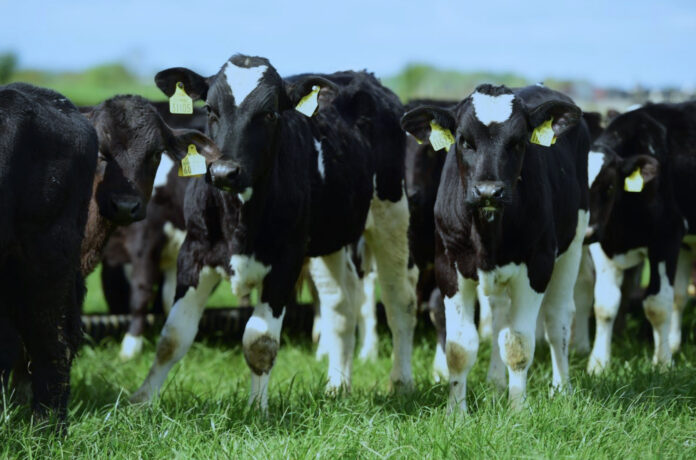
AS Gardaí confirmed they were liaising with the Department of Agriculture as part of a probe into the deaths of a large number of calves in County Limerick, farming sources said investigators will have to consider that a virus may have been partly or wholly responsible for the animals dying.
Sources told the Limerick Post that a large amount of carcasses of dead bull calves were removed from farmland in the Garryspillane area on Tuesday, September 6.
The last of the dead calves were removed by workers from a knackery in the Mid-West to be rendered.
“It was all cleared very early yesterday morning, the knackery came and collected them. That’s their job, that’s what they do. Any fallen animals on a farm have to be collected and taken away, which is what happened here eventually, maybe not soon enough but it has happened,” one of the sources explained
There have been conflicting reports about the number of dead or dying cattle found on the farm, with estimates ranging from 100 to 400.
Department of Agriculture officials declined to comment on the total number involved.
The Department became aware of the matter after a complaint was made about a putrid smell coming from farmland in the Garryspillane area.
It’s understood the cross-breed Jersey and Friesian bull calves may have died from a variety of issues, including disease and malnutrition.
While not commenting specifically on the case in question, a reliable farming source said: “It’s a possibility that you can get a bout of virus pneumonia which, like a fire, goes through animals, that can just kill them one after the other and it spreads like that.”
“They could also be slightly malnourished. Farmers could be busy in the summer and they may not have seen the animals in a few days and by the time they get around to seeing them, they are dead.”
The source said the calves found dead on the Limerick farm were cross bred “where there was a Jersey bull used on a black and white Friesian cow”.
“A male calf is not worth much, because they don’t have any beef value, they remain skinny. They can potentially be reared for beef but they are a very slow burn in terms of putting flesh on them.”
“The females are valuable because they produce good quality milk. Whereas your normal beef type cattle, Charolais, Simmental, Hereford, Aberdeen Angus all have also very good beef qualities, the Jersey is a boney animal and they don’t have a lot of value in terms of beef.”
“If it’s a case that the animals weren’t being looked after properly, then that is sad but we don’t know.”
It was unclear if the calves in question were born on the farm or brought in from outside.
Sources said a virus in a young herd can be a “scourge” for a farmer.
“There are a number of viruses – one is called coccidiosis (a parasitic disease) which is a very fast killer, it is curable but it really stumps the animal when it gets into them. The pneumonia virus is spread from calf to calf through nose contact. Then there is a thing called Blackleg which they have to be vaccinated for, and which calves can die from overnight.
“There is another thing called Blacks Disease which runs through cattle as well. The best of cattle would die from that, nothing to do with nourishment or anything like that.”






